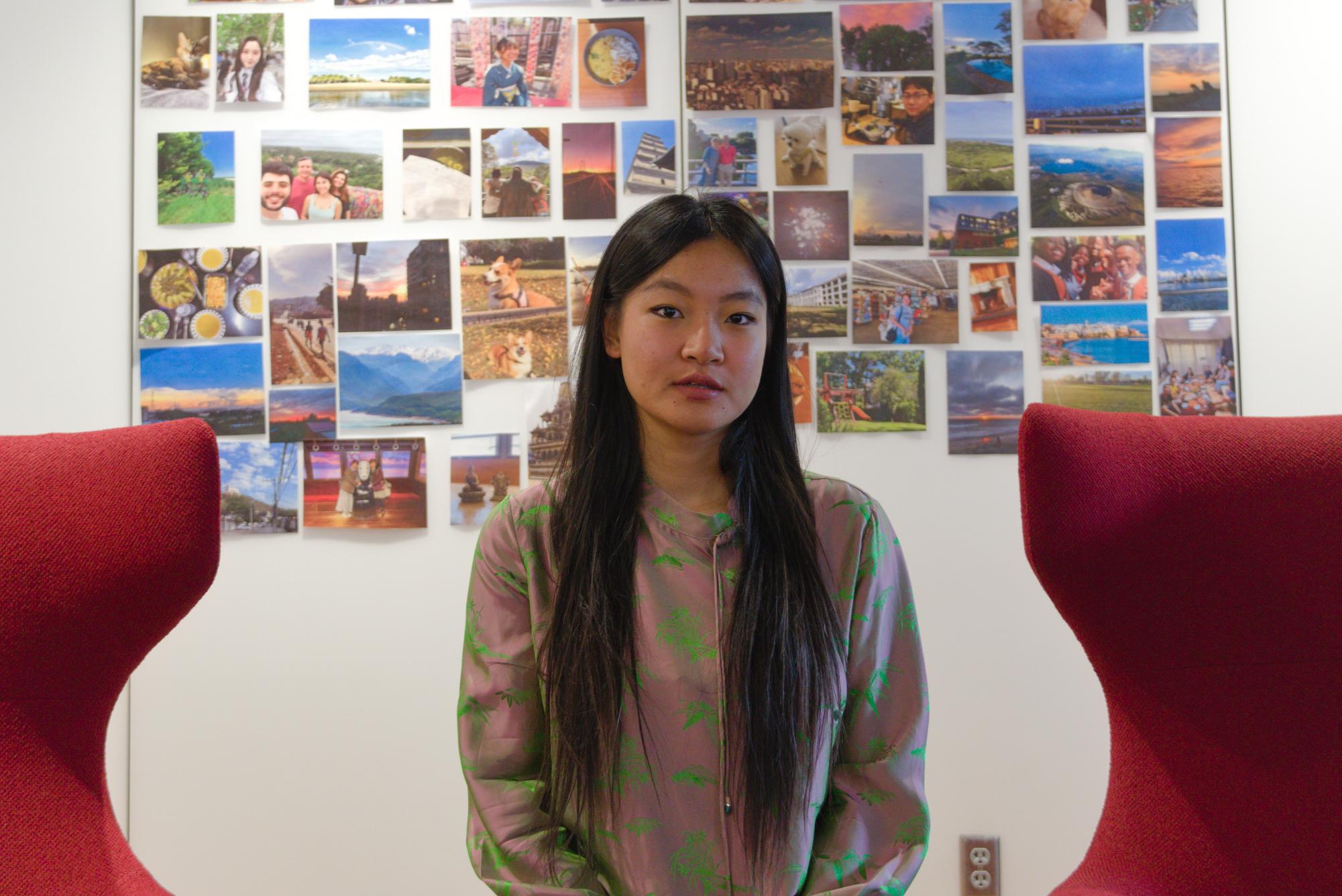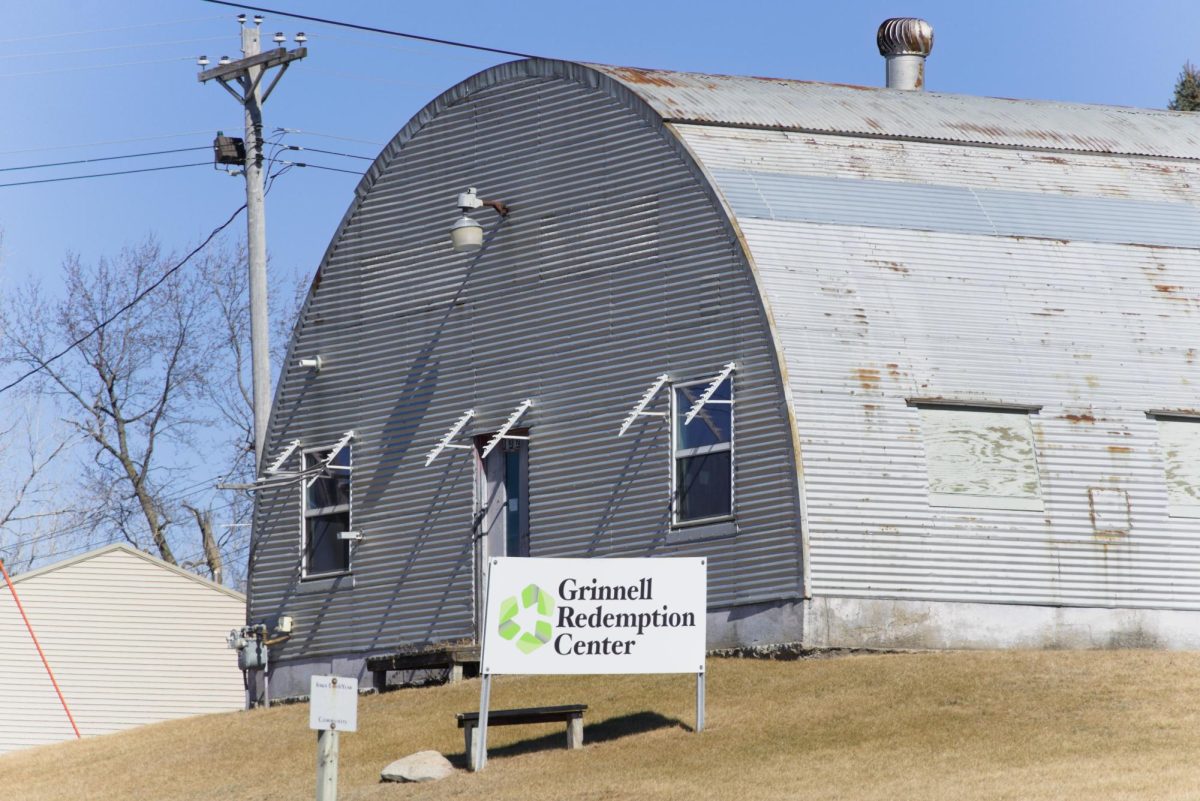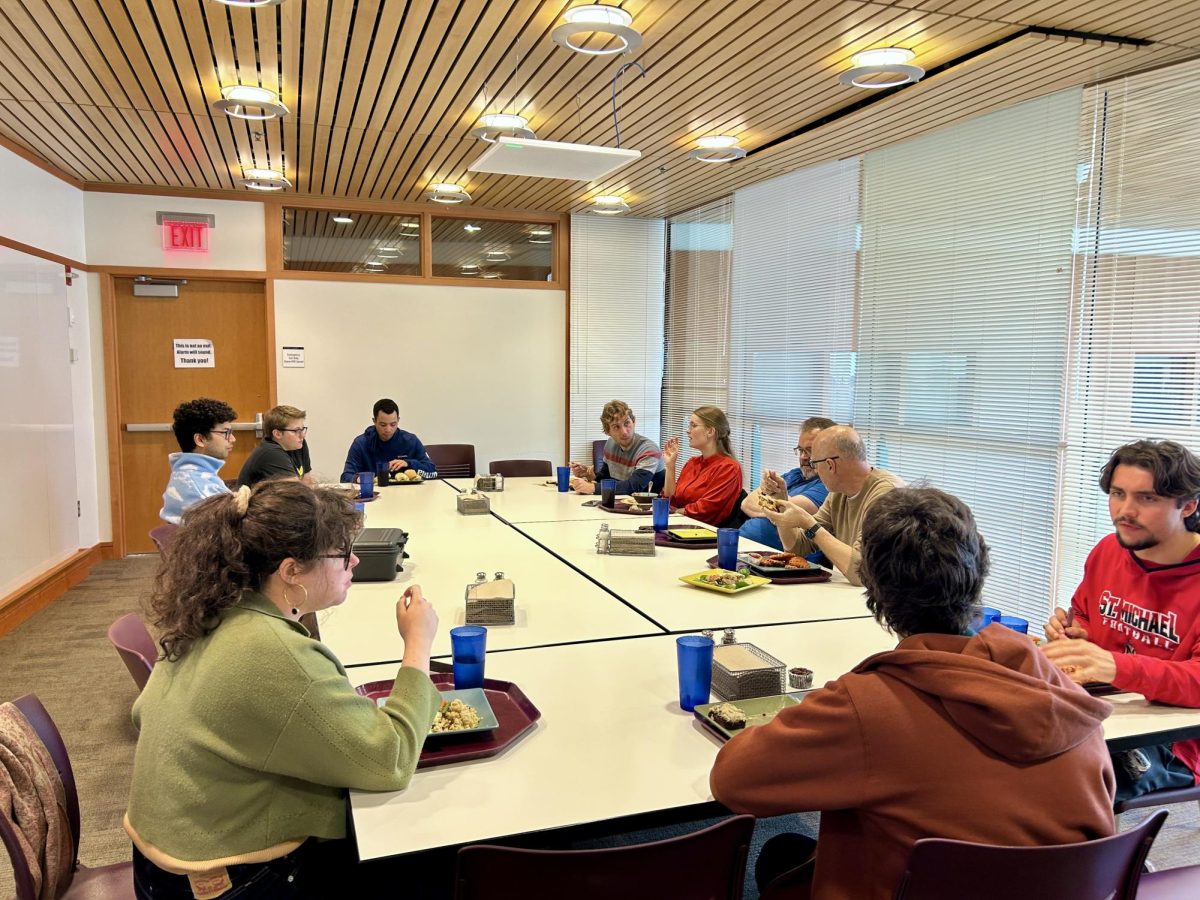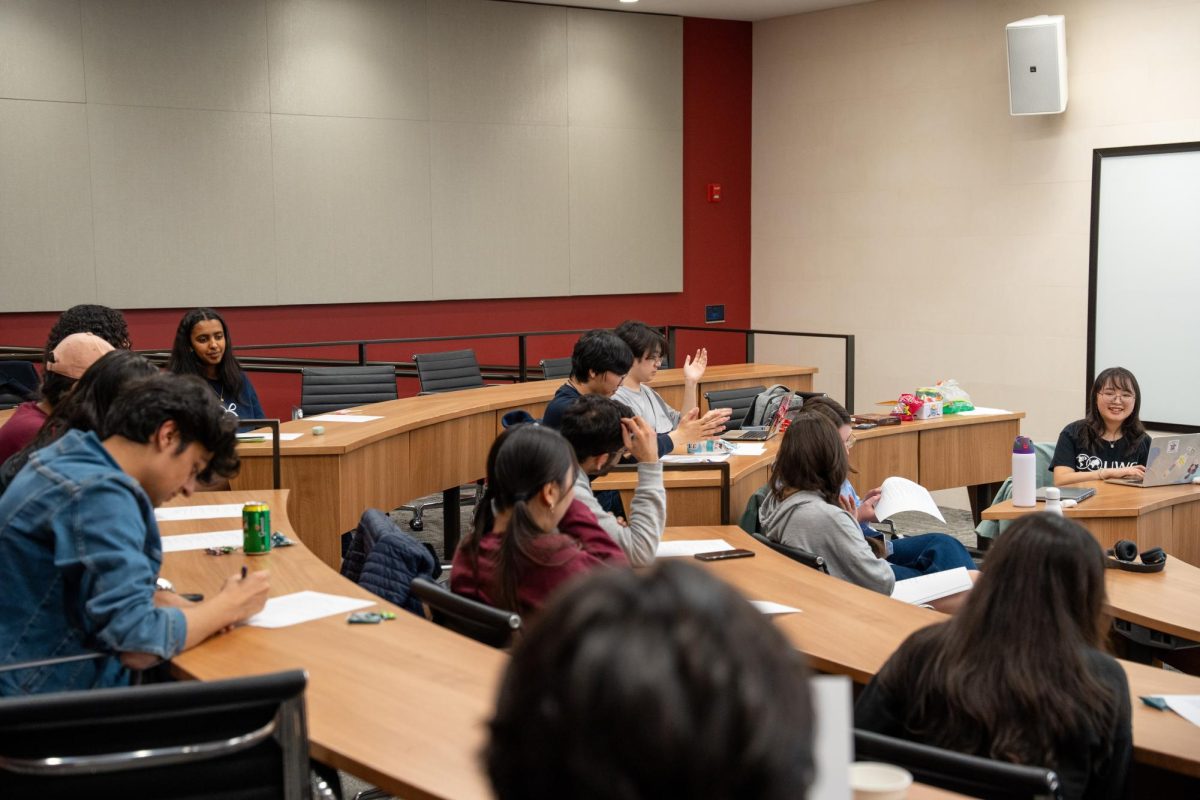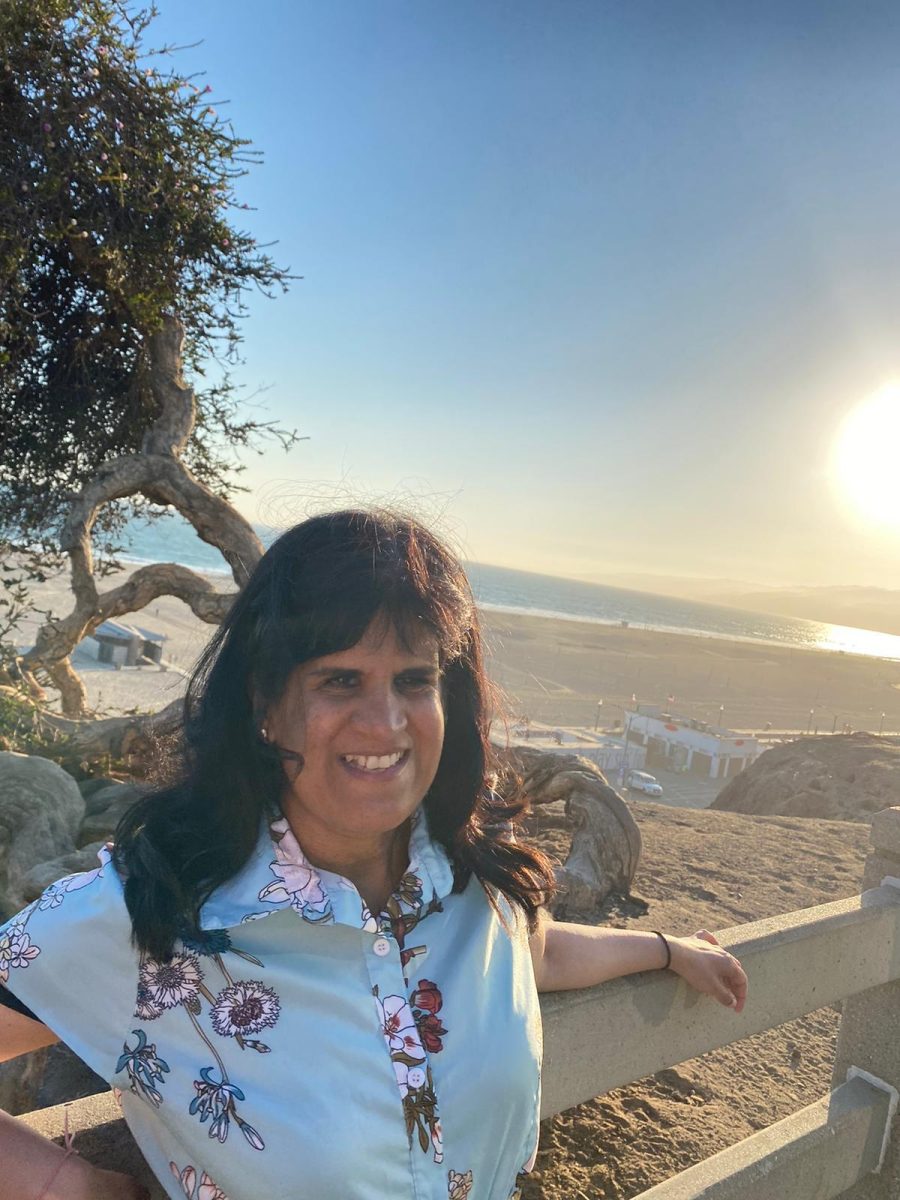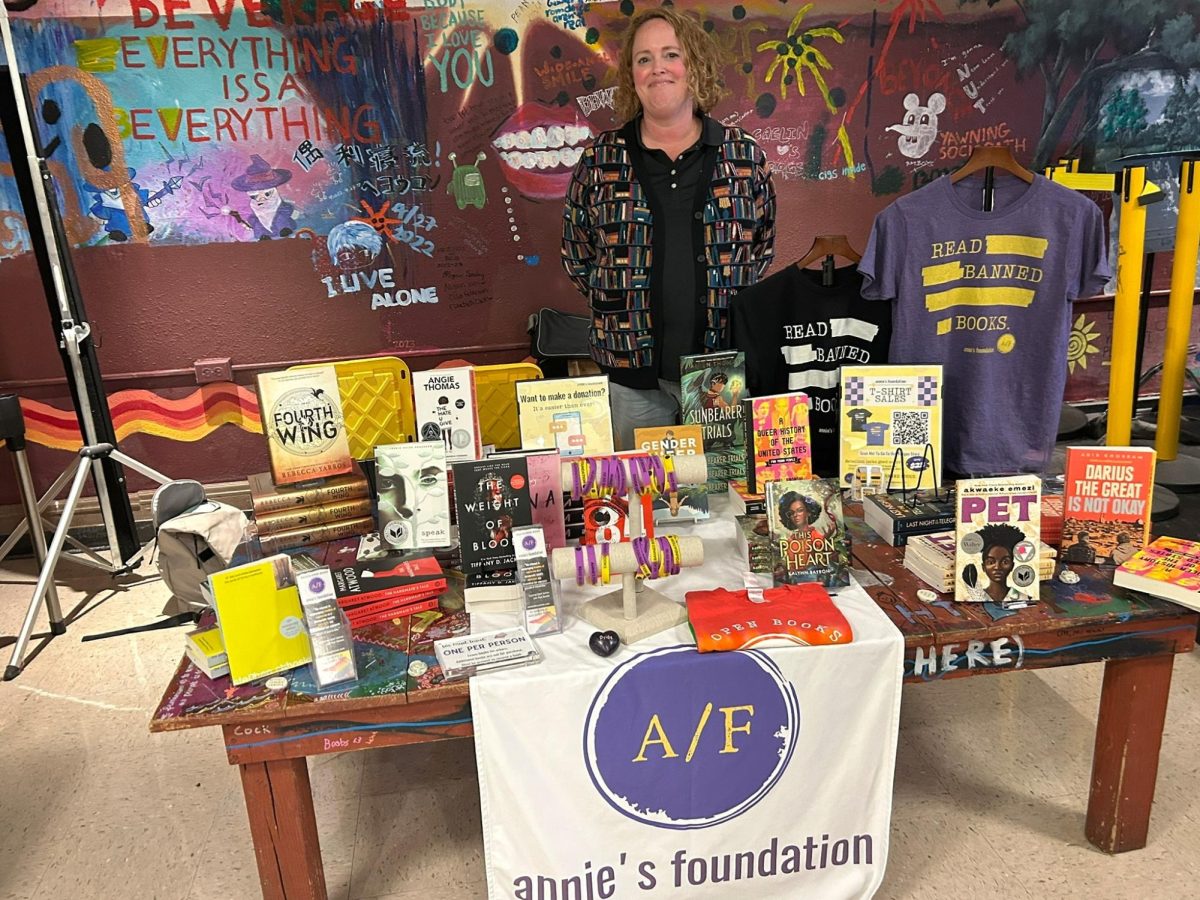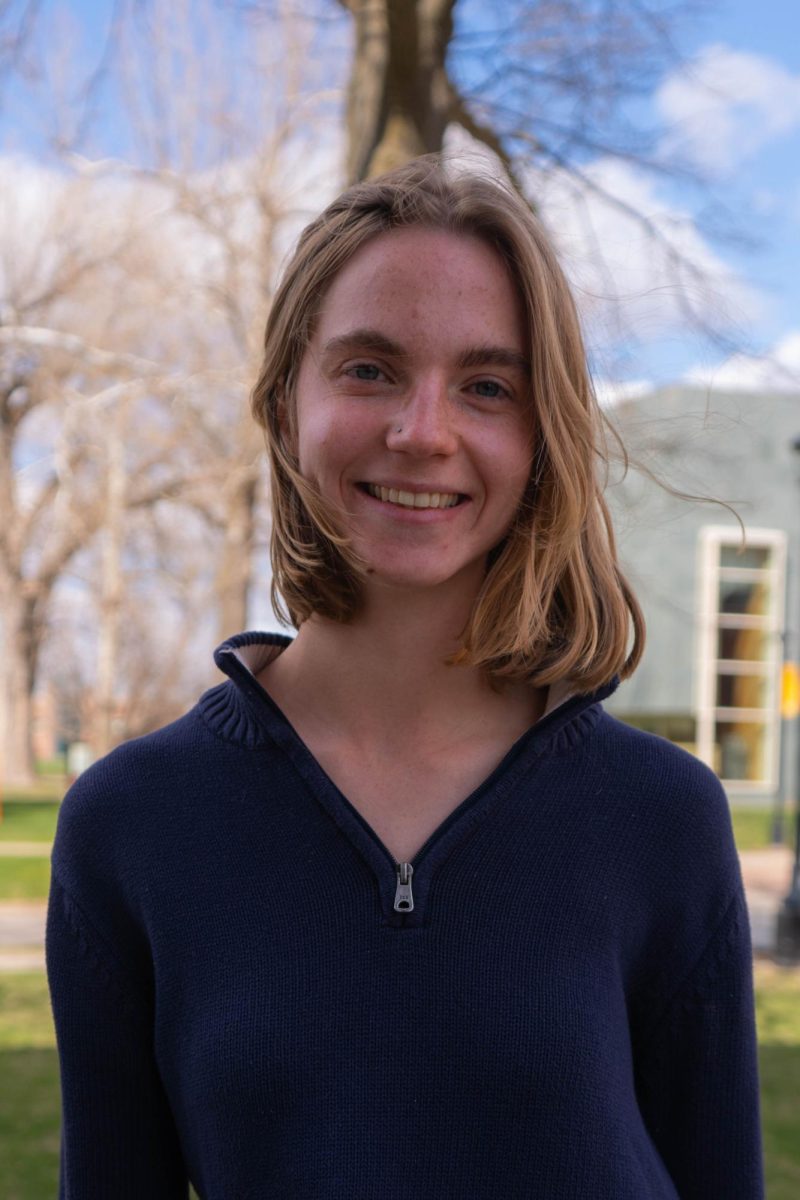At Grinnell College, students pursue passions that shape their academic careers and impact society. The S&B spoke to Olivia Wang `25 and Chikako Inoue `26, two recipients of the Fischlowitz Travel Fellowship, which supports Grinnell College international students as they explore the United States independently while delving into themes that drive their academic and personal missions. Wang was awarded the fellowship in 2024 and completed her travel last year, while Inoue has yet to embark on their Fischlowitz adventure.
Surfing and (Sub)cultural Exchange
Wang’s journey explored a spectrum of surf spots, from iconic locations like Huntington Beach, Newport Beach, and Cocoa Beach to lesser-known destinations such as Sheboygan on Lake Michigan and the Gulf Coast near Tampa. Each site offered a distinct glimpse into the local surfing community. While some regions, like Florida and Wisconsin, presented challenging wave conditions, these hurdles only deepened her understanding.
“Even when the waves weren’t ideal, I found opportunities to learn and connect with the people around me,” Wang explained. This adaptive mindset allowed her to observe how geography and community values shape local surf cultures and the ethos of the sport overall.
“I wasn’t just chasing waves,” she said. “I was looking at how people connect to water, to land, and to each other.”
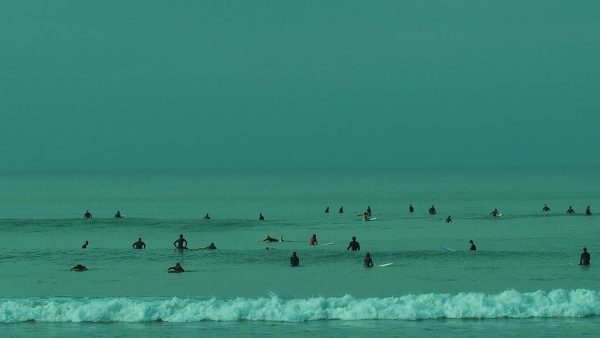
Beyond the act of surfing itself, Wang’s experience was shaped by her earlier volunteer work with a surf club in Guangdong, China. “The surf club I volunteered with in Guangdong had such a strong sense of purpose — not just surfing for fun, but educating people about the ocean,” she said. “That was where I first saw surfing as something communal and even political.”
These early impressions informed how she approached surf culture in the U.S., where she encountered both polished, image-driven scenes and more relaxed, grassroots communities. “California surf culture felt very polished — like everyone had the right gear, the right look. But places like Cocoa Beach felt more laid-back, more welcoming in a way.”
For Wang, surfing became a way to explore themes of identity, community, and freedom. “Surfing made me think a lot about freedom — how different places and people define it.”
Her travels showed her how the same passion — surfing — can be expressed through very different lived experiences, yet still function as a shared cultural language. In each place, she found a narrative of belonging: one shaped not only by waves, but by people, place, and purpose.
Intergenerational Healing Through Transnational Histories
While Olivia Wang’s travels are complete, Chikako Inoue `26 is just preparing for their own fellowship journey. Recently announced as the 2025 recipient of the Fischlowitz Travel Fellowship, Inoue, a Gender, Women’s and Sexuality Studies major from Saitama, Japan, will embark on their fellowship trip in Aug. 2025.
Inoue’s project centers on the history of “comfort women” — a term for the women and girls subjected to sexual slavery by the Japanese military during World War II. This topic is both a personal and academic focus for Inoue, and they plan to examine how the legacy of this trauma is commemorated within the Asian-American community, especially through statues of peace placed in U.S. cities.
These statues, found in areas with significant Asian-American populations, serve as memorials to the victims of wartime sexual violence. Inoue aims to explore how these memorials act as a form of healing, fostering solidarity and activism within affected communities.
Inoue was encouraged to apply for the fellowship by Ekta Shaikh `24, a fellow GWSS major and previous recipient of the award, who worked on similar gender-based issues.
“I was inspired by their work and saw the fellowship as a chance to deepen my own understanding of American culture, contribute to my community, and expand my network of scholars and activists,” Inoue noted.
As a Japanese student studying in the U.S., Inoue is uniquely positioned to engage with this issue from multiple perspectives — as a scholar, an activist and someone with personal connections to Japan’s wartime actions.
“This project is about acknowledging a painful history and working towards healing,” Inoue explained. “The memorials are not just about remembering the past but about creating spaces for dialogue and solidarity.”
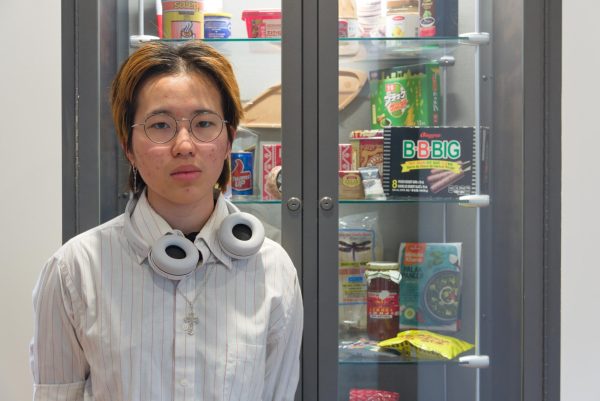
Inoue also plans to visit key sites, including Glendale, California, where one of the memorials stands, and other cities where similar statues are located. They aim to connect with residents involved in the commemoration and reparation efforts to better understand how public acts of remembrance can serve as tools for healing and social justice.
For future applicants, Inoue emphasized the importance of passion and purpose in the proposal. “This fellowship is a powerful tool for anyone looking to deepen their academic and activist work while engaging with diverse communities. My project is personal, and I believe that authenticity shines through in the application process.”
Inoue’s fellowship will also provide opportunities to connect with scholars and activists who are also addressing issues like colonialism, decolonization and the legacy of wartime sexual violence. “I want to bring the experiences of comfort women into broader conversations about colonialism, trauma and healing,” Inoue said.
The Fischlowitz Fellowship Selection Process
Emily Perry, assistant director of international student programs at Grinnell’s Office of International Student Affairs (OISA), oversees the logistics of the Fischlowitz Travel Fellowship. She described the process in a recent interview, noting that a selection committee reviews proposals and selects three finalists for interviews before choosing the final recipient.
The committee has five members — a representative each from the Office Development and Alumni Relations, global fellowships and awards and the Institute for Global Engagement, a rotating faculty member and the most recent recipient of the fellowship (Wang participated in the 2025 search committee.) Perry’s role is to manage the logistics while remaining neutral in the final decision-making process.
The selection committee evaluates applicants based on a rubric that considers the clarity of their theme, the feasibility of their travel plans and their overall maturity and adaptability. Perry emphasized the importance of seeing clear goals, realistic planning and the ability to engage with new experiences. Applicants are encouraged to demonstrate openness to learning and flexibility in their travel plans, as the fellowship places a strong emphasis on independent exploration and personal growth.
The number of applications for the Fischlowitz Travel Fellowship has remained consistent despite concerns during the pandemic. “We’ve seen a steady number of applications each year, with students engaging deeply with the themes they propose,” Perry said.
While Inoue’s fellowship travel has not yet begun, they took an early step in preparation after being invited to attend the 25th anniversary of the Women’s International War Crimes Tribunal on March 13, 2025, at Cardozo School of Law in New York City. The event honored the legacy of the comfort women and the tribunal, marking its 25th anniversary and reflecting on its ongoing impact.

